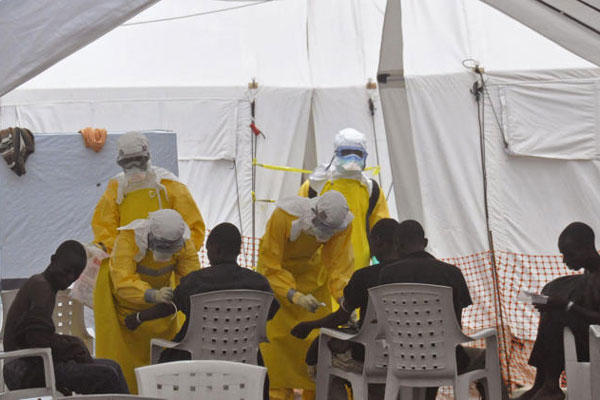Defense Department civilians deploying to West Africa to combat Ebola will not be subject to the mandatory 21-day quarantines upon return to the U.S. that have been ordered for all service members.
The latest policy directive on Ebola deployments issued by Jessica Wright, the undersecretary of Defense for Personnel and Readiness, said that DoD civilians will be given a choice that they must exercise before going to West Africa.
They can either agree to take the same 21 days of isolation and “enhanced monitoring” as the troops, or choose to abide by the less strict Centers for Disease Control guidelines calling for taking their own temperatures twice daily without being isolated and periodic face-to-face monitoring by a health professional.
Currently, there are about 55 DoD civlians deployed with more than 1,100 U.S. troops in Liberia and Senegal, Pentagon officials said.The DoD policy for civilians differed from the rules for service members because, as civilians, “we legally can’t force them to undergo controlled monitoring,” said Rear Adm. John Kirby, the Pentagon press secretary.
A memo from Wright said that “all DoD personnel will be monitored for exposure to the Ebola Virus Disease (EVD) on an ongoing basis throughout their deployment to any country defined as an Ebola outbreak area, and then for 21 days thereafter.”
Civilians had two options – comply with CDC, state and local guidelines “to include twice daily temperature checks,” or “voluntarily participate” in the 21 days of isolation that will be required of the troops, the memo said.
If the civilians chose the CDC guidelines, no leave, Temporary Duty or Temporary Additional Duty “will be authorized outside the local area to assure continued face-to-face monitoring,” the memo said.
In ordering 21-days of isolation and monitoring for the troops, Defense Secretary said at a Pentagon briefing Thursday that his action was a "smart, wise, prudent, disciplined, science-oriented decision."
However, health professionals have questioned whether the mandatory 21-day quarantines for the military were medically necessary.
“My opinion is that quarantining all troops coming back home is not medically warranted,” said Dr. Barry Rosenthal , chairman of the Department of Emergency Medicine at Winthrop-University Hospital in Mineola, N.Y.
"The policy provides a sense of security to the general public but there is no scientific medical basis for the policy,” Rosenthal said in a phone interview. The troops should be commended “for alleviating the anxiety out there even though the anxiety seems to be unfounded,” Rosenthal said.
-- Richard Sisk can be reached at Richard.Sisk@military.com
Don't Miss a Single Military.com Story
To read the full article and get exclusive benefits, sign up today.
It’s FREE
Why am I seeing this? Visit our FAQs



























